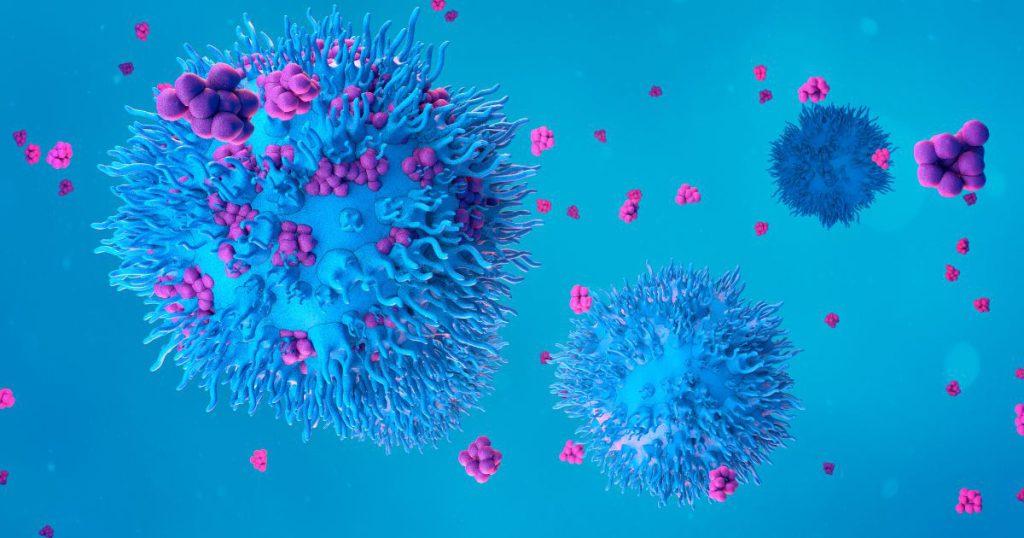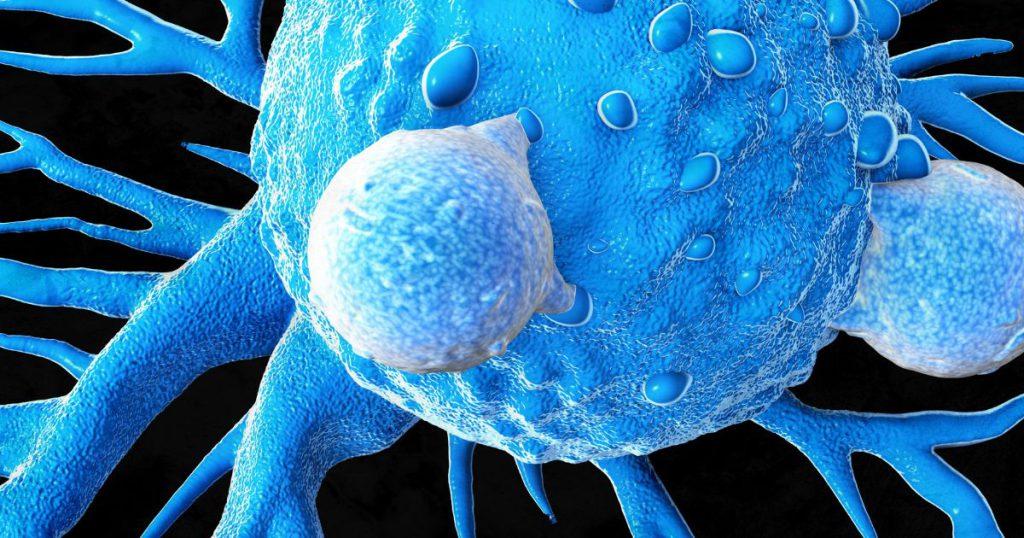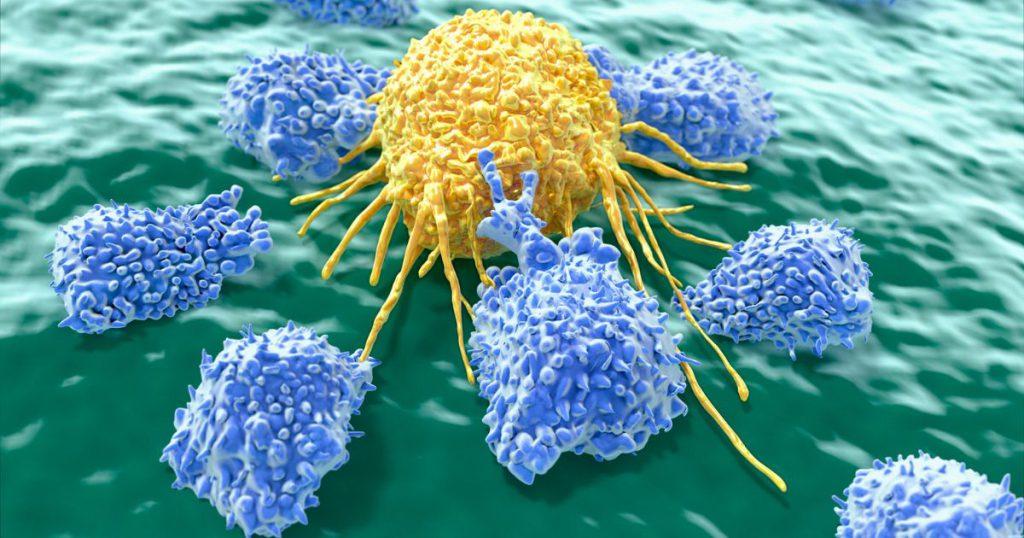Lymphocytes and immune responses
Table of Contents
Key Summary Table: Lymphocytes
| Category | Description |
|---|---|
| Type of Cell | White Blood Cell |
| Main Types | B cells and T cells |
| Role in Immune System | Recognizing and responding to foreign substances |
| High Count Indicates | Body fighting off an infection or certain medical conditions |
| Low Count Indicates | Weakened immune system due to various factors |
Lymphocytes, those tiny powerhouses of our immune system, are more than just cells. They’re our body’s personal security team, always on high alert, ready to tackle invaders. Intrigued? Let’s explore their role in immune responses and why it matters to you!
Introduction
In the fascinating world of Hematology, one cell type stands out for its crucial role in our body’s defense system – the Lymphocytes. These tiny powerhouses are the unsung heroes of our immune system, tirelessly working to keep us healthy and safe from disease. They are the guardians of our body, always on the lookout for foreign invaders and ready to spring into action at the first sign of trouble.
Studying Lymphocytes has not only deepened my understanding of Hematology but also underscored the importance of maintaining a healthy immune system.
As a student of Medical Technology, I’ve had the unique opportunity to study these remarkable cells up close. The more I learn about them, the more I’m amazed by their complexity and the vital role they play in our health. In this post, I’ll share with you some of the insights I’ve gained about Lymphocytes and their role in our immune responses.
So, let’s dive in and explore the world of Lymphocytes. Whether you’re a fellow student, a curious reader, or someone interested in Hematology, I hope this post will provide you with a deeper understanding of these fascinating cells.

Understanding Lymphocytes
Before we delve into the complexities, let’s first understand what Lymphocytes are and why they are so important. Lymphocytes are a type of white blood cell that plays a central role in our immune system. They are responsible for recognizing and responding to foreign substances, such as bacteria, viruses, and other harmful pathogens.
- Lymphocytes are a type of white blood cell.
- They play a crucial role in our immune system.
- They recognize and respond to foreign substances.
- There are two main types: B cells and T cells.
There are two main types of Lymphocytes: B-cells and T-cells. B-cells produce antibodies, which are proteins that can latch onto foreign substances and neutralize them. T-cells, on the other hand, can directly attack infected cells and help regulate the immune response. Together, these two types of Lymphocytes form a formidable defense against a wide range of threats to our health.
But what happens when the number of Lymphocytes in our body changes? What does it mean when your Lymphocyte levels are high or low? Let’s explore these questions in the next section.
Types of Lymphocytes
Did you know that not all Lymphocytes are created equal? Let’s explore the different types and their unique roles. As I mentioned earlier, there are two main types of Lymphocytes: B-cells and T-cells. But within these two categories, there are several subtypes, each with its own specific function.
B-cells, for instance, can differentiate into plasma cells, which produce antibodies. These antibodies are like the body’s own custom-made weapons, designed to target specific pathogens. T-cells, on the other hand, can be divided into helper T-cells, which assist other immune cells, and killer T-cells, which can directly destroy infected cells.
| Type | Function |
|---|---|
| B-cells | Produce antibodies to neutralize foreign substances |
| T-cells | Directly attack infected cells and regulate immune response |
Understanding these different types of Lymphocytes and their roles is crucial for understanding how our immune system works. But how do these cells respond when our body is under attack? Let’s find out in the next section.

Lymphocytes and the Immune Response
Now that we know what Lymphocytes are, let’s delve into how they orchestrate our body’s immune responses. When a foreign substance enters our body, it’s recognized as an invader by our immune system. This triggers a complex series of events, with Lymphocytes playing a central role.
B-cells can recognize the foreign substance and start producing antibodies. These antibodies then latch onto the invader, marking it for destruction. Meanwhile, helper T cells stimulate other immune cells to join the fight, while killer T-cells directly attack infected cells.
This coordinated response is what allows our body to defend itself against a wide range of threats. But what happens when the number of Lymphocytes in our body changes?
Lymphocyte Levels: Highs, Lows, and What They Mean
Ever wondered what it means when your lymphocyte levels are high or low? Let’s unravel these medical mysteries. The number of Lymphocytes in our blood can fluctuate for various reasons. When the number is high, it’s usually a sign that our body is fighting off an infection. This is because our immune system produces more Lymphocytes to combat the foreign invaders.
On the other hand, low Lymphocyte levels can be a sign of a weakened immune system. This could be due to a variety of factors, such as stress, malnutrition, or certain medical conditions. But is a high Lymphocyte count always good, and is a low count always bad?
| Lymphocyte Level | Possible Implication |
|---|---|
| High | Body fighting off an infection or certain medical conditions |
| Low | Weakened immune system due to stress, malnutrition, or certain medical conditions |
What does it mean when your lymphocytes are high?
When your Lymphocyte count is high, it’s usually a sign that your body is fighting off an infection. This is because Lymphocytes are part of our immune system, and their numbers increase when our body is under attack from foreign substances like bacteria or viruses. However, in some cases, a high Lymphocyte count can also be a sign of certain medical conditions, such as lymphoma or chronic lymphocytic leukemia.
- Usually indicates the body is fighting off an infection.
- Can also be a sign of certain medical conditions.
- If high count persists, it should be investigated by a healthcare professional.
What does it mean when your lymphocytes are low?
A low Lymphocyte count, on the other hand, can be a sign of a weakened immune system. This could be due to a variety of factors, such as stress, malnutrition, or certain medical conditions like HIV/AIDS or chemotherapy for cancer. A low Lymphocyte count means your body may not be able to effectively fight off infections, making you more susceptible to illnesses.
- Can be a sign of a weakened immune system.
- Could be due to stress, malnutrition, or certain medical conditions.
- If low count persists, it should be evaluated by a healthcare professional.
Is high lymphocytes good or bad?
A high Lymphocyte count is not inherently good or bad. It’s simply a sign that your body is responding to an infection or other threat. However, if your Lymphocyte count remains high for an extended period, or if it’s accompanied by other symptoms, it could be a sign of a more serious condition and should be investigated by a healthcare professional.
When should I worry about low lymphocytes?
You should be concerned about low Lymphocytes if the count remains low for an extended period, or if it’s accompanied by other symptoms like frequent infections, fatigue, or unexplained weight loss. A persistently low Lymphocyte count could be a sign of a serious health condition and should be evaluated by a healthcare professional.
What is an alarming number of lymphocytes?
The normal range for Lymphocytes varies depending on the lab that analyzes the blood sample. However, a count significantly above or below the normal range could be cause for concern. If you’re unsure about your Lymphocyte count, it’s best to consult with a healthcare professional who can interpret the results in the context of your overall health.
How long does it take for lymphocytes to return to normal?
The time it takes for Lymphocyte levels to return to normal can vary widely depending on the cause of the fluctuation. If the high or low count is due to an acute infection, the levels may return to normal once the infection is resolved. However, if the change in Lymphocyte count is due to a chronic condition, it may take longer for the levels to normalize, and ongoing medical treatment may be required.
Recovery Time for Lymphocyte Levels
| Cause of Fluctuation | Recovery Time |
|---|---|
| Acute infection | Levels return to normal once infection is resolved |
| Chronic condition | Longer recovery time, may require ongoing medical treatment |

| Symptoms | Possible Cause |
|---|---|
| Frequent infections, fatigue, unexplained weight loss | Low Lymphocyte Count |
| Fever, night sweats, unexplained weight loss | High Lymphocyte Count |
Lymphocytes in Hematology
In Hematology, the study of Lymphocytes provides valuable insights into our health and disease states. These cells are a crucial part of our immune system, and changes in their number or function can have significant implications for our health. By studying Lymphocytes, hematologists can gain a deeper understanding of how our body defends itself against disease and how this defense can sometimes go awry.

The immune system is not a single entity. We must think of it as a complex network, and Lymphocytes are one of the key players in this intricate game of protection.
Conclusion
Lymphocytes may be small, but their impact on our health is immense. They are the guardians of our body, always on the lookout for foreign invaders and ready to spring into action at the first sign of trouble. Understanding these cells and how they function can provide us with valuable insights into our health and how we can support our immune system.
As a student of Medical Technology, I’m continually amazed by the complexity and resilience of our immune system. I hope this post has given you a deeper appreciation for these remarkable cells and the vital role they play in our health.
Studying Lymphocytes has not only deepened my understanding of Hematology but also underscored the importance of maintaining a healthy immune system. It’s reinforced my belief in the importance of a balanced diet, regular exercise, and adequate sleep in supporting our immune health.
Disclaimer: This article is intended for informational purposes only and is not a substitute for professional medical advice. Always seek the advice of your healthcare provider with any questions you may have regarding a medical condition.
If you find the captivating world of hematology as intriguing as I do, continue exploring this fascinating field. Visit my Hematology index page or the Hematology category for more in-depth articles and insights.
Other posts of interest: Eosinophils and their involvement in allergic reactions and Monocytes and macrophages
Frequently Asked Questions
What are Lymphocytes?
Lymphocytes are a type of white blood cell that plays a crucial role in our immune system. They are responsible for recognizing and responding to foreign substances, such as bacteria, viruses, and other harmful pathogens.
What are the different types of Lymphocytes?
There are two main types of Lymphocytes: B cells and T cells. B cells produce antibodies, which are proteins that can latch onto foreign substances and neutralize them. T cells, on the other hand, can directly attack infected cells and help regulate the immune response.
What does it mean when your lymphocyte levels are high?
When your lymphocyte levels are high, it’s usually a sign that your body is fighting off an infection. However, in some cases, a high lymphocyte count can also be a sign of certain medical conditions, such as lymphoma or chronic lymphocytic leukemia.
What does it mean when your lymphocyte levels are low?
A low lymphocyte count can be a sign of a weakened immune system. This could be due to a variety of factors, such as stress, malnutrition, or certain medical conditions like HIV/AIDS or chemotherapy for cancer.
Is a high lymphocyte count good or bad?
A high lymphocyte count is not inherently good or bad. It’s simply a sign that your body is responding to an infection or other threat. However, if your lymphocyte count remains high for an extended period, or if it’s accompanied by other symptoms, it could be a sign of a more serious condition and should be investigated by a healthcare professional.
When should I worry about low lymphocytes?
You should be concerned about low lymphocytes if the count remains low for an extended period, or if it’s accompanied by other symptoms like frequent infections, fatigue, or unexplained weight loss. A persistently low lymphocyte count could be a sign of a serious health condition and should be evaluated by a healthcare professional.
How long does it take for lymphocytes to return to normal?
The time it takes for lymphocyte levels to return to normal can vary widely depending on the cause of the fluctuation. If the high or low count is due to an acute infection, the levels may return to normal once the infection is resolved. However, if the change in lymphocyte count is due to a chronic condition, it may take longer for the levels to normalize, and ongoing medical treatment may be required.
Further Reading
Lymphocytes: Function, Definition, Levels & Ranges
Sean Schepers is a third-year Medical Technology student at Mahidol University with a passion for all things health and medicine. His journey into the world of medicine has led him to explore various fields. Sean's blog posts offer a unique perspective, combining his academic insights with personal experiences. When he's not studying or blogging, Sean enjoys keeping up with politics and planning his future career in medicine.
In addition to his studies, Sean serves as the chairman of the Rights, Liberties, and Welfare Committee, a role that reflects his commitment to advocacy and social justice. Beyond his academic pursuits, Sean offers tutoring services in English and Biology, further demonstrating his dedication to education and mentorship. His journey is one of continuous discovery, and he invites others to join him as he explores the dynamic and transformative world of medical technology.


